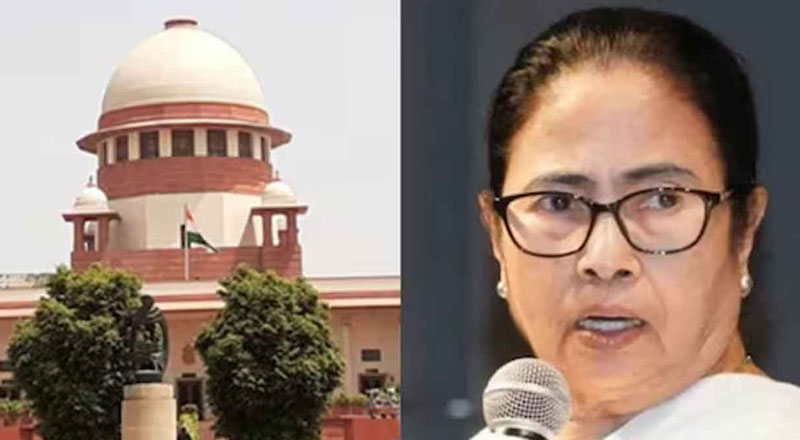A Recruitment Scam Unfolds
In a landmark ruling, the Supreme Court has upheld the Calcutta High Court’s decision to cancel the appointment of over 25,000 teachers and non-teaching staff in West Bengal. The verdict, a significant blow to the Mamata Banerjee-led Trinamool Congress (TMC) government, comes amid allegations of widespread fraud and manipulation in the recruitment process under the West Bengal School Service Commission (WBSSC).
The controversy dates back to 2016 when a state-level selection test was conducted, attracting more than 23 lakh candidates for 24,640 vacancies. However, the government issued 25,753 appointment letters—exceeding the original count—raising serious concerns about irregularities. The scandal led to the arrest of several top TMC leaders, including former Education Minister Partha Chatterjee, who was found with large sums of cash, allegedly linked to the recruitment fraud.
Supreme Court Upholds High Court Ruling
A bench led by Chief Justice of India Sanjiv Khanna and Justice PV Sanjay Kumar ruled that the entire selection process was “vitiated by manipulation and fraud” and had lost its credibility. The Supreme Court found no grounds to overturn the High Court’s decision and ordered that all affected appointments be canceled.
Despite the setback, the court has allowed a fresh recruitment process to be conducted within three months. Those who successfully pass the new selection will not be required to return their salaries. However, those who fail must repay the salaries they have drawn since their appointment in 2016. In a minor relief, the court granted an exemption to persons with disabilities, allowing them to retain their positions.
Political Fallout and Reactions
The ruling has intensified political tensions in West Bengal. The Mamata Banerjee government had approached the Supreme Court, seeking to distinguish between "tainted" and "untainted" candidates, but the request was rejected. The decision not only raises questions about the state's hiring process but also highlights governance lapses within the TMC administration.
Senior BJP leader Amit Malviya labeled the verdict as a "crushing defeat" for Mamata Banerjee. He directly linked the Chief Minister to the scam, pointing to the imprisonment of Partha Chatterjee as evidence of corruption at the highest levels of the state government. He further demanded accountability from Banerjee, insisting that she, too, must face legal consequences for the scandal.
Consequences and Challenges
The verdict leaves the Mamata Banerjee government in a precarious position. The mass termination of teachers and staff will likely create a vacuum in West Bengal’s education system, disrupting schools across the state. The fresh recruitment process must be completed swiftly to prevent a crisis in staffing.
Moreover, the TMC’s credibility is at stake, especially ahead of upcoming elections. With opposition parties using the verdict as ammunition against the ruling government, Mamata Banerjee faces a daunting task in regaining public trust. The verdict may also trigger further investigations into other potential irregularities in the state’s administration.
As West Bengal prepares for a new phase in its recruitment process, the Supreme Court’s ruling sets a precedent for ensuring transparency in public sector hiring. However, the political storm surrounding the case is far from over, with both legal and electoral consequences still unfolding.
(With agency inputs)

Politics














